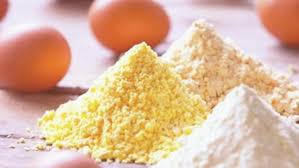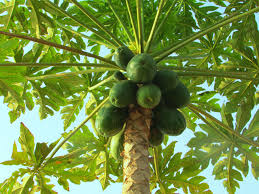
Egg is a highly nutritious product. Eggs are rich in protein, vitamins and minerals. The poultry sector in Nigeria has made tremendous progress in the last decade. It has grown into an organized and highly productive industry.
Nigeria is the largest producer of eggs in Africa, with ten billion, three hundred million (10,300,000,000) eggs produced annually, data from the Poultry Association of Nigeria (PAN) shows.
Nigerian poultry farmers usually experience a glut between February and May every year, largely because people tend to consume less egg during this period of the year and there is a short shelf life for eggs. This situation results in wastage of eggs, as eggs are mostly consumed during the rainy season.
To improve the shelf life and for ease of storage and usage, egg powder is very convenient. It is quite stable at room temperature and can be stored over longer period.
Powdered eggs are fully dehydrated eggs. They are made in a spray dryer in the same way that powdered milk is made.
Egg powder is used in fast food preparations, ice-creams, cakes, cookies, noodles, doughnut etc. In fact it can replace the use of fresh eggs in these food items, which would offer convenience and ease of handling as against shell eggs.
Reports reveal that food processing industries in West Africa spend over $2 billion annually in imports of egg and milk powder products and Nigeria is said to spend $1 billion annually in egg powder imports alone.
Presently there are only two (2) egg powder plants in Nigeria. One is located in Ogun state (Answer Industries Limited- makers of kara-kara) and the other in (Greenfield Assets Limited) in Ondo state. Currently, less than five percent (5%) of the country’s egg powder demand is met by local production.
In the food industry, bakery and confectionery are the major segments that account for a higher demand, followed by meat products and sauces & dressings.
The food segment accounts for a significant revenue share in the global egg powder market, and is expected to register a high growth rate during the forecast period. Currently, the demand for egg powder is also rising among personal care products, cosmetics, animal feed, and pet food products.
The global egg powder market is expected to be valued at over US$ 840 Mn in 2017, growing at a compound annual growth rate (CAGR) of four point five percent (4.5%) during the forecast period 2017-2025 according to data from persistence market research.
Egg powder has an excellent export potential in countries like Germany, Austria, The Netherlands and Republic of Korea.
This report seeks to examine the financial viability or otherwise of producing egg powder from fresh eggs in Nigeria. Fresh eggs can be seperated and processed in egg powder (whole egg), egg powder (egg york) and egg powder (egg white). For the purpose of this write-up, we assumed that the plant would produce egg powder (whole egg) only.
Egg powder is produced from raw eggs by dehydrating or spray drying methods. Spray drying is a method to produce a dry powder egg by treating it with hot gas rapidly. Dehydration is done by removing water content from the raw eggs at a high temperature and is also ensured that any of the components is not lost. This process helps to provide a longer shelf life for the product. The product can stay up to six (6) months if stored in a cool, clean and dry place.
Whole egg powder would be packaged in vacuum high-density polyethylene (HDPE) bags in order to ensure the maximum safety and preservation.
The production plant comprises of egg powder plant, transformer with electric poles, generator, project vehicles, weigh bridge, wood pallets, diesel and petrol storage tank, stem boiler with accessories and air compressor.






















